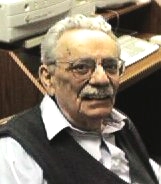
The Working Class and Social Change
Four Essays on the Working Class
Glaberman, Martin
http://www.connexions.org/CxArchive/MIA/glaberman/1975/wcchange/index.htm
http://www.marxists.org/archive/glaberman/1975/wcchange/index.htm
Publisher: New Hogtown Press, Toronto, Canada
Year Published: 1975
Pages: 41pp Resource Type: Pamphlet
Cx Number: CX5593
A study of "The Working Class," and the complexities of its definition as economic categories diffused from profound bases of social demarcation during the 1960's.
Abstract:
With the continual weakening of the basic social categorizations of economics, understandings of "middle" or "working" class are becoming decidedly simplistic and bereft of nuance. A specific impediment to defining the consciousness of the working class is its near-total inability to enunciate "a formal statement of belief." Much has been said and written about workers that workers do not believe: a disconnect exists between subject and object. Yet workers do engage in direct actions against capitalist aggression. It is only then, in the very struggle against a hostile economic system, that workers beging to conceive of "other possibilities" for their resistance. Analysis of the auto industry indicates that old, outdated unions are in need of replacement by more fluid, revolutionary organizations, ones "not simply organs of struggle but organs of control of production." A review of Stanley Aronowitz's "False Promises: The Shaping of American Working Class Consciousness" is shown to advance the idea of radical socialist change coming through organs other than unions, and "grasps the totality and complexity of working-class consciousness" by "examining daily life."
Subject Headings


